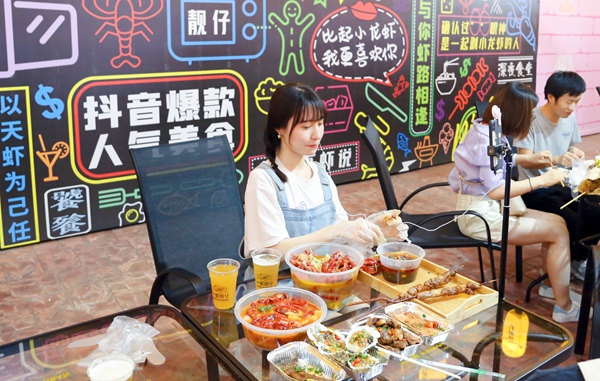Life in clips


"But the advantages still outweigh the disadvantages."
Zhao Kunjie, a 25-year-old marketing worker in Beijing, says she opens video-sharing app Bilibili first thing in the morning and just before falling asleep.
She especially enjoys promos for soap operas and films, and food vloggers.
"It's good to relax and laugh at these videos after an exhausting day at work," she says.
"Besides, I don't have time to watch full episodes of blockbusters, TV dramas or variety shows. Watching these short videos helps me grasp the basic information quickly."
In addition to personal interests, she also watches videos about the latest entertainment trends.
She follows 65 vloggers on Bilibili, who post new videos about such topics as history, legends, science and healthcare once every day or two. Most have over 100,000 fans. Each video is roughly five to 15 minutes long.
"Douyin's videos are much shorter, with each lasting just several seconds. It's too fast for me. You barely know what it's really about before the next video."
She believes its prevalence demonstrates the "fast-food culture "that has made people "less patient, more restless, overlook details and give up deep thinking".
"Videos may be easier to comprehend, but books help you think," she says, adding she reads every evening.
Liang Xiao, a 28-year-old media worker in Beijing, mostly watches short videos for academic purposes. He doesn't care much for funny clips, he says.
He spends about half an hour a day browsing finance-related content, such as stock analyses, on the short-video sharing platform Kuaishou after dinner or in the morning.
"There are some professional graphics or interpretations that can be helpful for my work," he says.




































